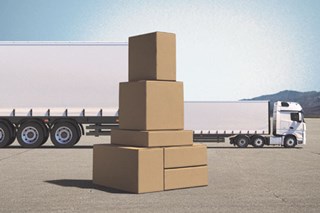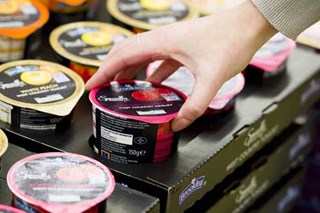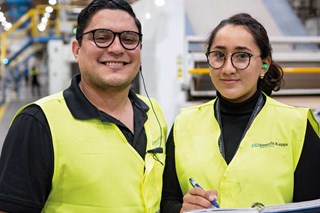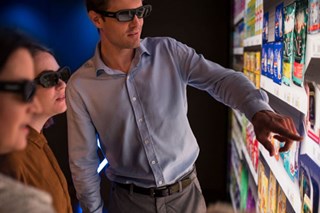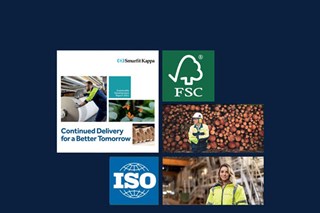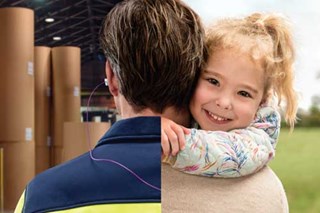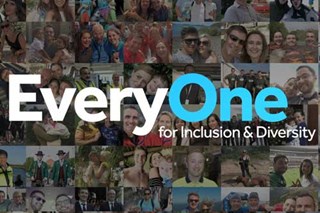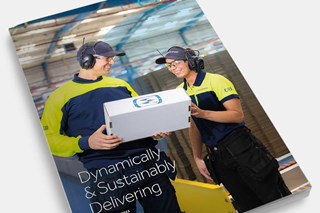Read how Smurfit Kappa collaborated with 'The North Face' to replace plastic bags with sustainable paper-based packaging. By incorporating a QR code on the new packaging, 'The North Face' was able to capture invaluable customer feedback.
Smart Packaging: How QR Codes improve customer experience

One trend gaining traction in the eCommerce market is smart packaging, specifically packaging with digital QR codes. These square barcodes have quietly started appearing on both inner and outer product packaging, enabling communication with customers' smartphones. In a digital world where convenience and accessibility are paramount, QR codes have become powerful tools that bridge the gap between the physical and the digital.
In this blog post, we will explore the use of QR Codes in the packaging world and dive into how they are revolutionizing the customer experience. From instant access to product information to marketing campaigns, QR codes are paving the way for a new era of interaction and engagement. Get ready to unlock the future as we uncover the countless potentials of QR codes and why they are an important and useful part of your packaging strategy.
QR codes bring your eCommerce packaging to life
QR codes have become ubiquitous, found on everything from restaurant tables to payment solutions, and now they are making their way into packaging. By utilising the smart technology behind QR codes, you can bring your eCommerce packaging to life with interactive elements. This creates a connection between the physical product the customer receives and your online presence on social media, your website, or your webshop.
Packaging design plays a crucial role in customers' first impressions. By combining your packaging design with QR codes, you can provide customers with an experience that is memorable, fun, and most importantly, leaves a lasting impression. The more innovative and functional your packaging is, the more your customers will appreciate it
However, it's important to consider customers who may not be as tech-savvy. All essential product information should be included on a piece of paper or clearly printed on the cardboard box. Non-essential details can be incorporated into a QR code.

Here are some best practices for QR codes:
- Print QR codes on multiple surfaces of the checkout for easy visibility.
- Include a text-based call-to-action (CTA) that explains why customers should scan the code.
- Provide alternative ways to access information.
- Size the QR code so that it can be scanned from a distance of more than 30 cm when the box is on the floor.
- Choose a colour that makes the QR code stand out and matches the box design.
- Use a minimum size of 20 x 20 millimetres for the QR code.
- Avoid placing the QR code next to a barcode to ensure easy scanning.
- QR codes should not replace all forms of URLs. Use the URL for general website access but use QR codes for specific pages or information that have long and cumbersome URLs.
From information to interaction: QR Codes change the packaging game
QR codes serve as valuable tools for sharing all kinds of useful information with customers. They provide an easy and convenient way for consumers to access additional information about your product or brand. By scanning the QR code with a smartphone or QR code reader, consumers can quickly access your website, product information, promotional offers, assembly guides, and instructional videos, or even participate in giving feedback or discussing your sustainability initiatives.
You can use QR codes to show customers how to style their new items or provide virtual instructional videos on product usage, showcasing features they may not be aware of. Giving customers a good introduction to your brand and product should be a central part of the customer experience. It's a small gesture, but one that holds significant value in promoting your company and its story. Ultimately, by sharing information about your product or company, you increase the likelihood that customers will choose your product over competitors, which puts you in a better position in the market.

Instantly connect with your customers
QR codes on packaging revolutionize consumer interaction with your brand, boost trust, and significantly improve the customer experience. You can use QR codes for questionnaires to gather valuable feedback from customers, enabling you to understand where you excel and where you can improve. QR codes allow you to collect real-time feedback as soon as customers receive their purchases.
Innovative marketing: How QR Codes increase product sales
QR codes are also effective marketing tools for engaging with customers and promoting your products or services. They provide the opportunity to create interactive campaigns by linking QR codes to special offers, discounts, or exclusive content. QR codes unleash your creativity, helping increase sales and build brand loyalty. Additionally, QR codes offer measurable results, allowing you to track how many customers choose to scan the code.
Use a smart Call-to-Action (CTA) to encourage customer action
To encourage customers to scan your QR codes, it's essential to have a well-thought-out call-to-action (CTA). The CTA should grab consumers' attention and communicate the value of scanning the code. Instead of simply using "Scan me," consider using phrases like "Discover more here" or "Learn more here" to pique consumer curiosity.

Dynamic vs. Static QR Codes: What's the difference?
When it comes to QR codes, there are dynamic and static types. Dynamic QR codes allow you to edit the URL address your customers access, offering flexibility without the need to reprint codes on numerous packages. You can update the link to provide new information or promotions to share with your customers, ensuring ongoing relevance.
Overall, QR codes on cardboard boxes are a versatile and effective way to connect with consumers, provide valuable information, and enhance marketing efforts.

